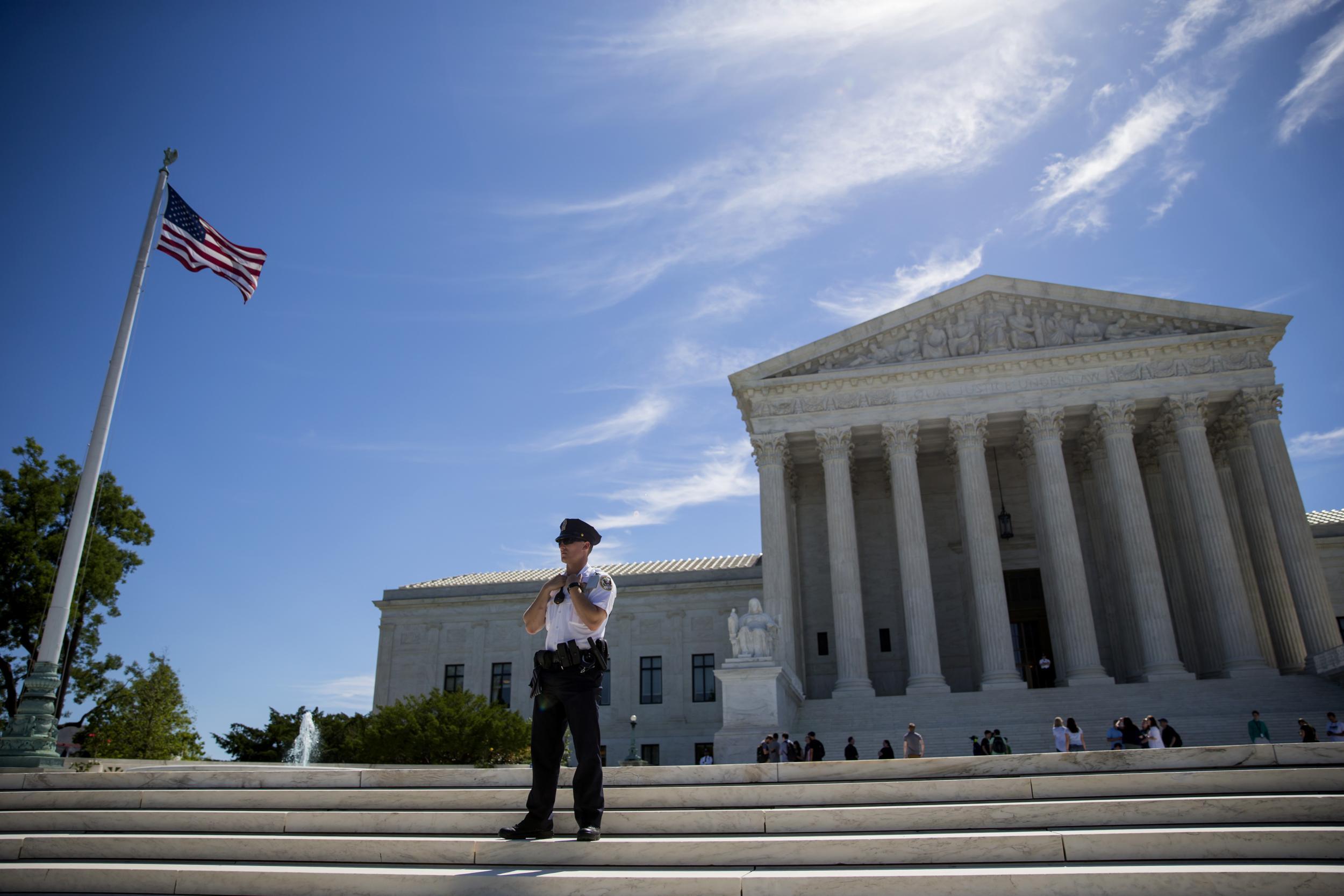Supreme Court lifts restriction on Trump 'Muslim ban', barring 24,000 people from entering US
States suing over the travel ban will still have a chance to respond

The US Supreme Court has granted the Trump administration's request to temporarily lift restrictions on the President's travel ban, quashing an opportunity for tens of thousands of refugees to enter the country.
At the request of the Justice Department, the Supreme Court stayed a lower court ruling that would have exempted some people for the administration's ban on refugees. The ruling would have allowed refugees to enter the country if they obtained promises of assistance from refugee resettlement organisations. An estimated 24,000 refugees have obtained such promises.
In a one-page ruling, signed by Justice Anthony Kennedy, the Supreme Court announced that the exemption would be stayed, pending a response from the states involved in the suit. Had the Court not acted, the exemption would have gone into effect on Tuesday.
The Supreme Court temporarily reinstated a partial version of Mr Trump's beleaguered ban in June, pending their final decision in October. The ban, stalled by numerous legal challenges, had failed to take effect until that point.
The Court provided several exemptions to the ban, however, allowing refugees with "bona fide connections" to the US to enter the country.
Monday's ruling concerned the definition of a "bona-fide connection": The state of Hawaii felt having an arrangement with a resettlement agency constituted such a connection; the Trump administration did not.
"The court of appeals’ decision ... will disrupt the status quo and frustrate orderly implementation of the Order’s refugee provisions that this Court made clear months ago could take effect," Mr Trump's Acting Solicitor General, Jeffery Wall, wrote to the Court.
He asked the Court to "prevent further uncertainty and disruption" by staying the court of appeals’ ruling. The Court agreed – at least for Monday.
Neal Katyal, a lawyer representing the state of Hawaii in its suit against the ban, said on Twitter the he would fight the decision. Hawaii is one of more than a half-dozen states that have sued to block the ban since its implementation.
Lawyers have argued that the ban, which bars entry for refugees and residents of six Muslim-majority countries, constitutes a 'Muslim ban'. Such a ban would violate constitutional prohibitions on favouring one religion over another. Two separate appeals courts have already ruled the ban unconstitutional.
Mr Trump, meanwhile, maintains the ban is a necessary national security measure.
"That's right, we need a TRAVEL BAN for certain DANGEROUS countries, not some politically correct term that won't help us protect our people!" he tweeted in June.
Join our commenting forum
Join thought-provoking conversations, follow other Independent readers and see their replies
Comments
Bookmark popover
Removed from bookmarks